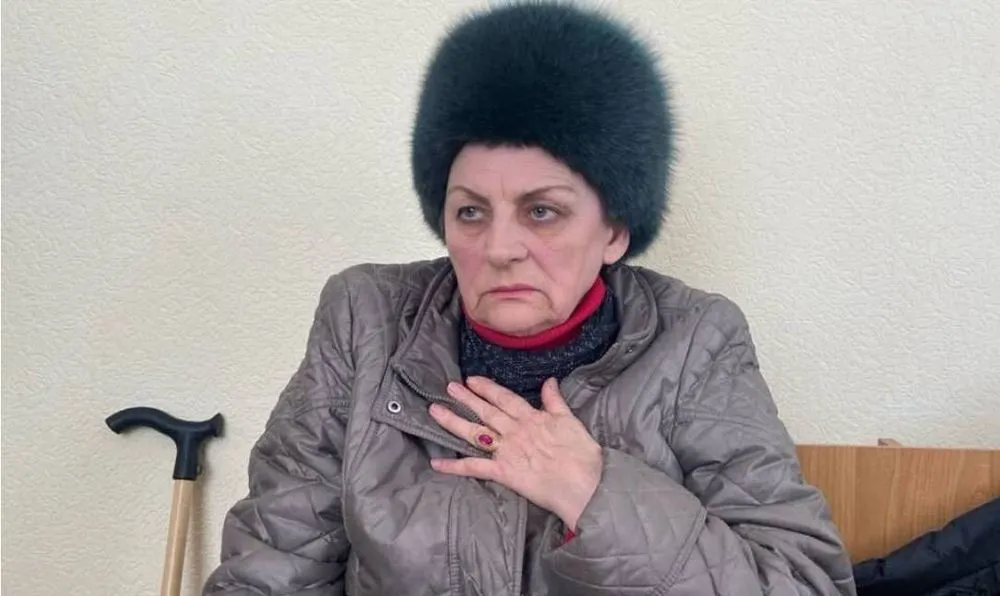72-year-old Russian woman sentenced to 5 years in prison for anti-war posts on social media
A 72-year-old Russian woman received a 5.5-year prison sentence for sharing anti-war messages on social media platform VKontakte in the latest example of the Kremlin’s crackdown on citizens criticizing the government online.
Evgeniya Mayboroda, a resident of Russia’s Rostov region, was found guilty of spreading calls for extremist activity and alleged “military” fakes motivated by political hatred, according to the Russian digital rights organization Net Freedoms Project.
Local prosecutors said that Mayboroda reposted information about the number of Russian soldiers killed in Ukraine and shared an “emotional video” on VKontakte. She pleaded guilty but denied that she was motivated by political hatred. Mayboroda explained that she reposted the mentioned content because, during one of the missile strikes on the central Ukrainian city of Dnipro, her brother was trapped under the rubble when his house collapsed.
Dnipro, known for its once-thriving space industry, is constantly shelled by Russia. Last January, one of Russia’s deadliest attacks on the city destroyed a nine-story residential building, killing 46 people, including six children, and injuring dozens more.
This isn't the first time Mayboroda has come under scrutiny from local authorities for her online activities.
In January of last year, the court fined her 40,000 rubles ($445) for "discrediting the army" and criticizing the war on her VKontakte page. In March of last year, she was sentenced to administrative arrest twice, for three and four days respectively, for publishing a video showing Nazi symbols, as well as other content deemed "extremist" by Russian authorities. In April, Mayboroda was added to the state register of terrorists and extremists.
Such cases are common in Russia. From March 2022, Russian authorities have initiated 263 court cases against individuals suspected of spreading military disinformation, and 157 cases against those accused of discrediting the Russian army, according to digital rights organization OVD Info, which independently monitors such incidents.
In March of last year, a Moscow court sentenced a 63-year-old railway worker Mikhail Simonov to seven years in prison for sharing alleged fakes about the army and anti-war posts on VKontakte.
He wrote about Russian missile strikes on Kyiv and the attack on the theater in Mariupol, which was being used by civilians as a bomb shelter during the siege of the city. The attack killed at least 600 people. In court, Simonov said, “I was driven only by the understanding that human life is priceless,” explaining his decision to write the posts.
According to court documents, two “concerned citizens” and “active users of social networks” reported Simonov to local authorities after seeing his posts online.
To simplify the reporting process, local authorities in some Russian regions have launched Telegram chatbots that allow citizens to snitch on colleagues and neighbors promoting “anti-Kremlin propaganda.”
“If your opinion is not anonymous, there is no safe platform to express it in Russia," said Natalia Malysheva, a spokesperson for the Russian digital rights organization Roskonsvododa, in an interview with Recorded Future News in November.
Earlier in January, the Russian government passed a draft bill allowing the state to confiscate the property of individuals convicted of spreading military “disinformation” and discrediting the Russian army. The bill also suggested stripping individuals convicted under it of titles and state awards.
The bill's authors include Russian politician Irina Yarovaya, known for her internet censorship initiatives, including the infamous Yarovaya law, which mandates that telecom providers store the content of voice calls, data, images, and text messages for six months and disclose them upon law enforcement requests.
Daryna Antoniuk
is a reporter for Recorded Future News based in Ukraine. She writes about cybersecurity startups, cyberattacks in Eastern Europe and the state of the cyberwar between Ukraine and Russia. She previously was a tech reporter for Forbes Ukraine. Her work has also been published at Sifted, The Kyiv Independent and The Kyiv Post.



